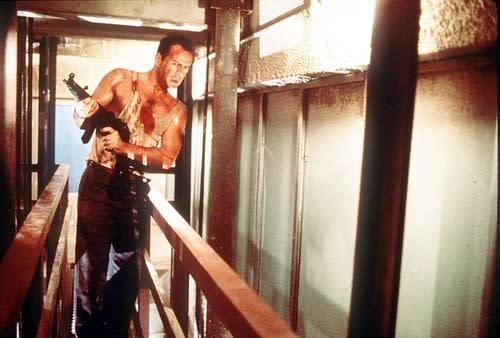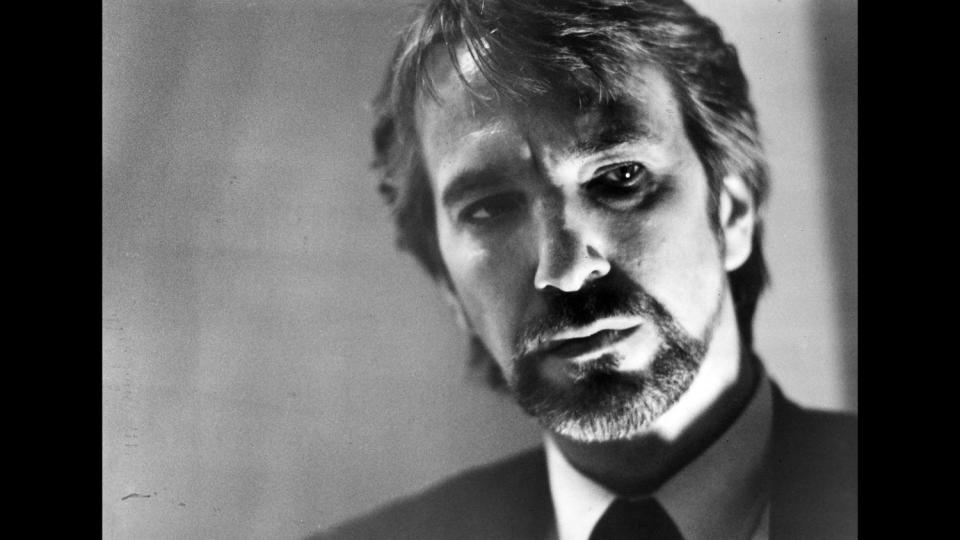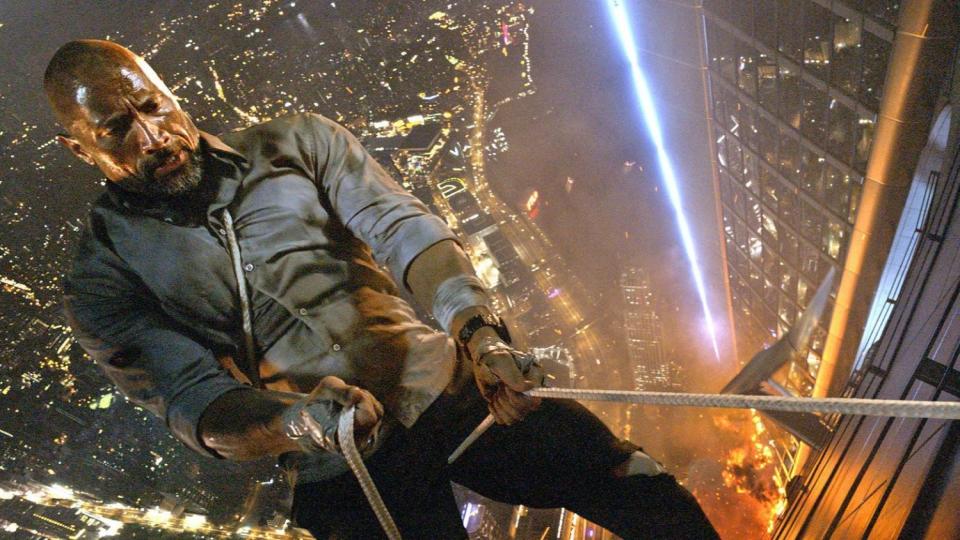Yippee-ki-yay, movie lovers: Why 'Die Hard' won this week's Ultimate Summer Movie Showdown

The #UltimateSummerMovie Showdown is underway, and voters have chosen “Die Hard” (1988) as their winner for Week 11, dedicated to movies first released in theaters from July 10-16 (between 1975 and 2019). Times film critic Justin Chang and entertainment columnist Glenn Whipp look back on the legacy of the classic action movie, which produced four sequels, countless clones and an indelible catchphrase that ranks among the greatest one-liners in film history. Welcome to the party, pals!
GLENN WHIPP: "Die Hard" wasn't the best action movie on the board this week. That would be Kathryn Bigelow's "Point Break," a primal yawp of transcendence that is indeed, to borrow the immortal words of Patrick Swayze's Bodhi, 100% pure adrenaline. "Die Hard" wasn't even the week's best Christmas-adjacent movie because nothing says the holidays like Stanley Kubrick's "Eyes Wide Shut," a movie stuffed with Christmas trees, twinkling holiday lights and a surreal nighttime journey rivaling anything Ebenezer Scrooge endured.
But I'm not completely out on "Die Hard," Justin. I watched the movie again a few months ago with my teenage son, who conveyed his approval by pocketing his phone early on and not checking it again until the closing credits rolled. That's four stars in his book. And I can probably pinpoint the moment he put down the phone: When Alan Rickman stepped off the elevator at the Nakatomi Plaza office Christmas party and, fondling his pocket planner (the ultimate '80s totem), unleashed Hans Gruber. For the "Harry Potter" generation, it's a great whiplash moment: That's ... that's ... Severus Snape!
There are reasons to recommend "Die Hard" three decades on — it's superbly shot (so ... much ... lighting!) and edited, it has Bruce Willis in peak "Moonlighting" smirk-and-bantering form — but the primary reason it still works so well is Rickman's brilliantly bored Gruber, a villain who, much like "Die Hard" itself, has been slavishly imitated but never surpassed. Rickman owns every moment he's on the screen. But if I had to pick a favorite scene, it's when Willis' McClane catches Gruber off-guard and he instantly affects an American accent, pretending he's a terrified hostage. Admittedly, the accent is terrible, but that open smile he adopts still sends a shiver down my spine. It's the best display of teeth since the shark in "Jaws." I doubt we'd still be talking about this movie, Justin, if Rickman wasn't in it.

JUSTIN CHANG: Revisiting “Die Hard” was a surprisingly poignant experience for me, Glenn, for precisely that reason. It was my first time seeing it since Rickman’s death in 2016, at the age of 69, and seeing him again in his oily, delectable, gun-toting, accent-butchering prime was a reminder of what a sublime villain he could be and what a superb actor he was. Rickman did play richer, more complicated baddies than Hans Gruber, to be sure; Snape was one of them, and while I never saw his Tony-nominated Valmont in “Les Liaisons Dangereuses,” I’d wager that he was another.
But goodness, what an unalloyed delight Rickman was — and still is — in “Die Hard.” He makes John McTiernan’s movie alone worth the price of admission, as they say, and maybe even worth the top slot in this week’s Showdown, even if I’m inclined to agree with you that there were more deserving movies (like “Point Break”) in the running. Some would argue that “When Harry Met Sally … ,” the second-place finisher, is the superior ’80s holiday classic, the quintessential romantic comedy to “Die Hard’s” quintessential action-thriller.
As for “Eyes Wide Shut,” it’d make a perfect Christmas-movie double bill with “Die Hard”: Each one, after all, is about an estranged husband who must embark on a weird, scary odyssey, involving sinister men and secret passwords, before being triumphantly reunited with his wife. I don’t think it’s a stretch to describe “Die Hard” as a comedy of remarriage (to borrow a useful term from the philosopher Stanley Cavell), albeit one in which the characters spend their time exchanging bullets rather than one-liners.
But no academic framework is needed to appreciate, on the first or thousandth viewing, why this movie remains a stone-cold classic of its type. It handed a terrific, undershirted and still-underappreciated Bruce Willis his signature role — and one that he’s worn better, frankly, than some of his compadres in their over-protracted B-movie franchises. It’s a model of how to shoot action that is not just beautifully staged and shot, but beautifully sustained; today’s blockbusters could learn something from this movie about how to modulate tension, how to ratchet up stakes, how to balance setbacks and payoffs, punches and punchlines. It manages all this so deftly, of course, because its story is ingeniously confined to a single location whose name, Nakatomi Plaza, has left a deeper pop-cultural imprint than some movies.

WHIPP: It left such an imprint that studios replicated the formula to death, pitting Everyman and his brother battling bad guys in single, contained locales. We had "Die Hard" on a boat ("Under Siege"), "Die Hard" on a mountain ("Cliffhanger"), a whole bunch of "Die Hards" on planes ("Air Force One," "Passenger 57," "Executive Decision," "Con Air"). By the time Dwayne Johnson fused "Die Hard" with "Towering Inferno" a couple of years ago with "Skyscraper," no amount of wink-wink, nudge-nudge self-awareness could make me surrender to another one of these movies. This popcorn had long gone stale.
How much do we blame the original films for the sins of their progeny, Justin? We celebrated "Jaws" earlier this summer with nary a mention of the three movies that followed it, one of which used 3-D decades before it became a fashionable (and unnecessary) blight at the nation's multiplexes. We don't hold Jar Jar Binks against "The Empire Strikes Back," and we can fondly remember "Raiders of the Lost Ark" without thinking of the nuke-the-fridge moment that would come a few films later.
I find it a little harder to do that with "Die Hard" because Willis and company went on to make four more movies that lost sight of what made the first movie so good — the fact that John McClane was human. If you pricked him (with exploding glass), did he not bleed? If you tickled him (some of those exchanges with Hans were pretty damn funny), did he not laugh? He was brave and resourceful, yes; but he was also tired and vulnerable. He could be hurt and, just as crucially, he could empathize with other people's feelings of loss and hurt. His soul-baring radio conversations with beat cop Al (Reginald VelJohnson) give "Die Hard" a touching emotional dimension rarely found in this type of movie.
So, OK, I guess I've talked myself into it. I'll probably watch "Die Hard" again. Maybe a month from now. Hell, maybe tonight. Just not on Christmas. Because, according to no less an authority than Willis himself, it's not that kind of movie.

CHANG: First of all, Glenn, “Skyscraper” is fun. I mean, it’s incredibly stupid and derivative, but it’s fun. No one will ever confuse the Rock with an Everyman, but he makes a perfectly enjoyable John McDwayne. Second of all, I’m a bit tired of the interminable is-this-a-Christmas-movie debate, which had some of our online followers wondering if “Die Hard” should even be in Ultimate Summer Movie Showdown contention to begin with. I mean, is “Gremlins” a Christmas movie? Is “Three Days of the Condor” a Christmas movie? Yes? No? Maybe? Who cares?
But since you brought it up — and the great Reginald VelJohnson — it’s worth noting that Willis’ costar is perfectly happy with the Christmas-movie designation, so who’s to say in the end? And speaking of which: Had VelJohnson not played Al, he would never have found his signature TV role as Chicago police officer Carl Winslow on “Family Matters,” a born-in-the-late-’80s pop-culture relic that I’m even fonder of than I am of “Die Hard.”
That’s enough of a legacy, for me, to offset a few decades’ worth of increasingly rudderless sequels. Although I do have vaguely fond memories of 2007’s “Live Free or Die Hard,” in which Willis’ now chrome-domed McClane did seem at least intermittently relatable in a grouchy, getting-too-old-for-this-crap kind of way. It was far from a great movie, but there was, within the context of yet another terrorist’s outlandish cyber-plot, at least some cursory attempt to acknowledge the very human indignities of growing older.
In a 2013 appreciation of the franchise for the New York Times Magazine, Adam Sternbergh noted that part of the appeal of Willis’ action hero is that he doesn’t restore order so much as disrupt it. Next to his adversaries, he is an agent of chaos, “the meddlesome kid who messes up their careful plans. He owes less to Marshal Dillon than he does to Scooby-Doo.” Over the course of all those sequels, of course, even that disruption began to feel a touch ritualistic, which is another reason why the first “Die Hard” still stands apart, still feels so fresh and persuasive today: You’re watching this guy as he’s caught genuinely off-guard, watching him figure things out for the first time in real time. He’s forging a template, not trying to slot himself into one.
I’ll end by noting the other reason it was so moving to revisit “Die Hard,” Glenn. Before rewatching the film this week, the last time I’d seen it was actually several years ago at a special screening held on the 20th Century Fox lot — not far from Fox Plaza, the Century City building that doubled as Nakatomi Plaza. I miss that enormous screen in the Darryl F. Zanuck Theater, and I miss the days when we could all congregate in the dark without fear of contagion. I also miss the days when Fox wasn’t just a corporate extension of the Walt Disney Co., when it existed as its own filmmaking entity and its own stronghold of Hollywood history. Over the years Fox made its share of good films and terrible films, and every once in a while it stumbled on a “Die Hard,” a movie that was built to last even if the studio ultimately wasn’t.

